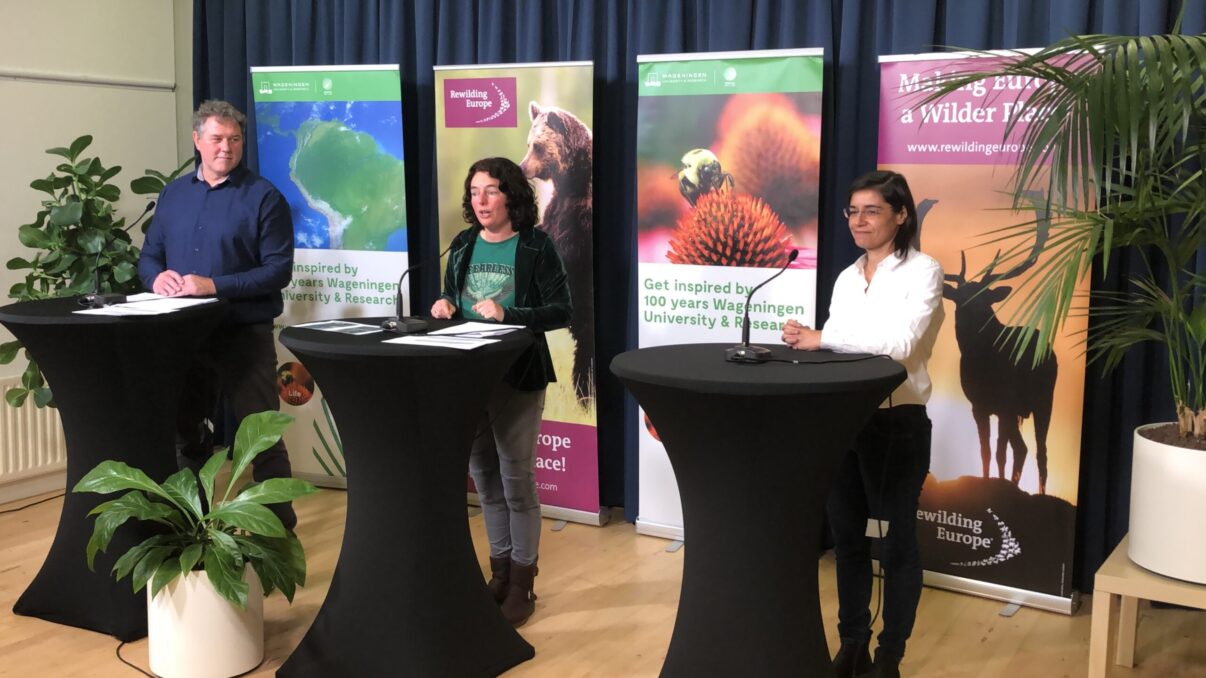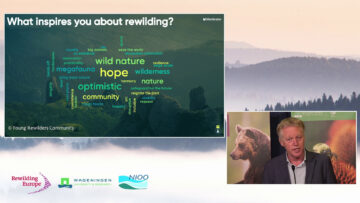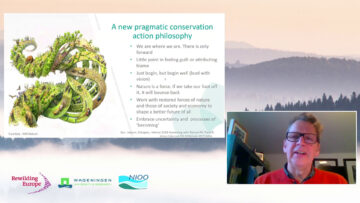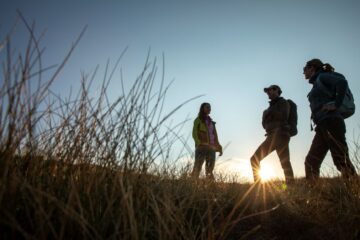With over 2000 participants, the enormous interest in last week’s Rewilding Symposium shows that rewilding is being increasingly embraced as a progressive approach to conservation. As the connection between rewilding science and practice develops, the impact of rewilding will continue to scale up and inspire others to become involved.

A bright future

Rewilding boasts increasing appeal as a progressive conservation approach and offers game-changing potential in terms of the global restoration of wild nature. These were the overriding takeaways from the incredibly successful online Rewilding Symposium, which took place last Thursday (December 3). More than 2000 people from more than 50 countries across the world joined the event, which was organised by Rewilding Europe, Wageningen University and the Netherlands Institute of Ecology (NIOO-KNAW). A huge amount of enthusiastic feedback was shared on social media during and after the programme.
“At the start of the symposium I posed the question: ‘can we rewild the world?'” says symposium co-host and event chair Liesbeth Bakker, Europe’s first professor of rewilding ecology. “Given the overwhelming interest in and positive feedback from this event, the simple answer has to be yes. There are still many questions to be answered, but with the connection between science and practice now developing strongly, the future for rewilding looks promising.”
Connecting rewilding science and practice

While the practice of rewilding is now gaining momentum and starting to deliver real impact across Europe, the science of rewilding is lagging behind. One of the aims of the symposium was to stimulate development of a rewilding science network that can support and learn from practice. In her opening remarks, Liesbeth Bakker spoke about how rewilding can benefit from the coming together of multiple disciplines.
“The symposium showed how rewilding is dissolving the boundaries between natural and social sciences and, importantly, the science practiced in universities and the applied scientific insight generated by rewilders in the field,” says Dr. Paul Jepson, who kicked off the symposium’s presentations. “This is hugely encouraging.”
Grassroots interest

The results from a symposium survey conducted after the event showed a high number of students, young professionals and entrepreneurial landowners interested in joining the rewilding movement. Rewilding Europe offers many ways for people to support and become actively involved in rewilding.
Rewilding Europe Capital – Rewilding Europe’s enterprise loan facility – provides financial loans to new and existing business that support rewilding in Europe, while the European Rewilding Network brings European rewilding initiatives of all descriptions closer together and enhances rewilding outcomes by facilitating the exchange of expertise and experience.
“We need to greatly upscale the practice of rewilding and to learn by doing,” says Rewilding Europe Managing Director Frans Schepers. “We call upon young scientists to build up their knowledge and become active rewilders. There are many opportunities out there to engage with both rewilding practice and science.”
Progressive programme
Participants in the Rewilding Symposium enjoyed presentations from six rewilding experts and practitioners, including Frans Schepers. These presentations are now online and can be viewed separately.
- Rewilding: A new narrative in conservation by Paul Jepson (Nature Recovery Lead, Ecosulis)
- Rewilding European Landscapes by Frans Schepers (Rewilding Europe)
- Mapping rewilding opportunities in Europe by Nestor Fernandez (German Centre for Integrative Biodiversity Research, iDiv)
- Restoring the role of megafauna in European ecosystems by Jens-Christian Svenning (Aarhus University)
- How to measure rewilding success by Patrick Jansen (Wageningen University)
- Connecting rewilding science and practice by Liesbeth Bakker (Netherlands Institute of Ecology and Wageningen University)

Before each presentation, a short video was shown relating to the subject of the presentation and showing the practical side of rewilding. “Zimbrul“, a beautiful short film by award-winning French videographer Emmanuel Rondeau, was also shown after the lunch break to illustrate the social impact of rewilding.
Hundreds of symposium viewers actively participated in the presentations by asking questions and sharing their opinion via polls, which were then discussed with the presenters after they had finished speaking.
“It was a real privilege to speak at this symposium and present my thoughts on the emergence of rewilding as a hopeful and empowering environmental narrative,” says Dr. Paul Jepson. “The event was a wonderful showcase of the pan-European community of scientists and practitioners who are together helping to accelerate and upscale ecosystem recovery.”
